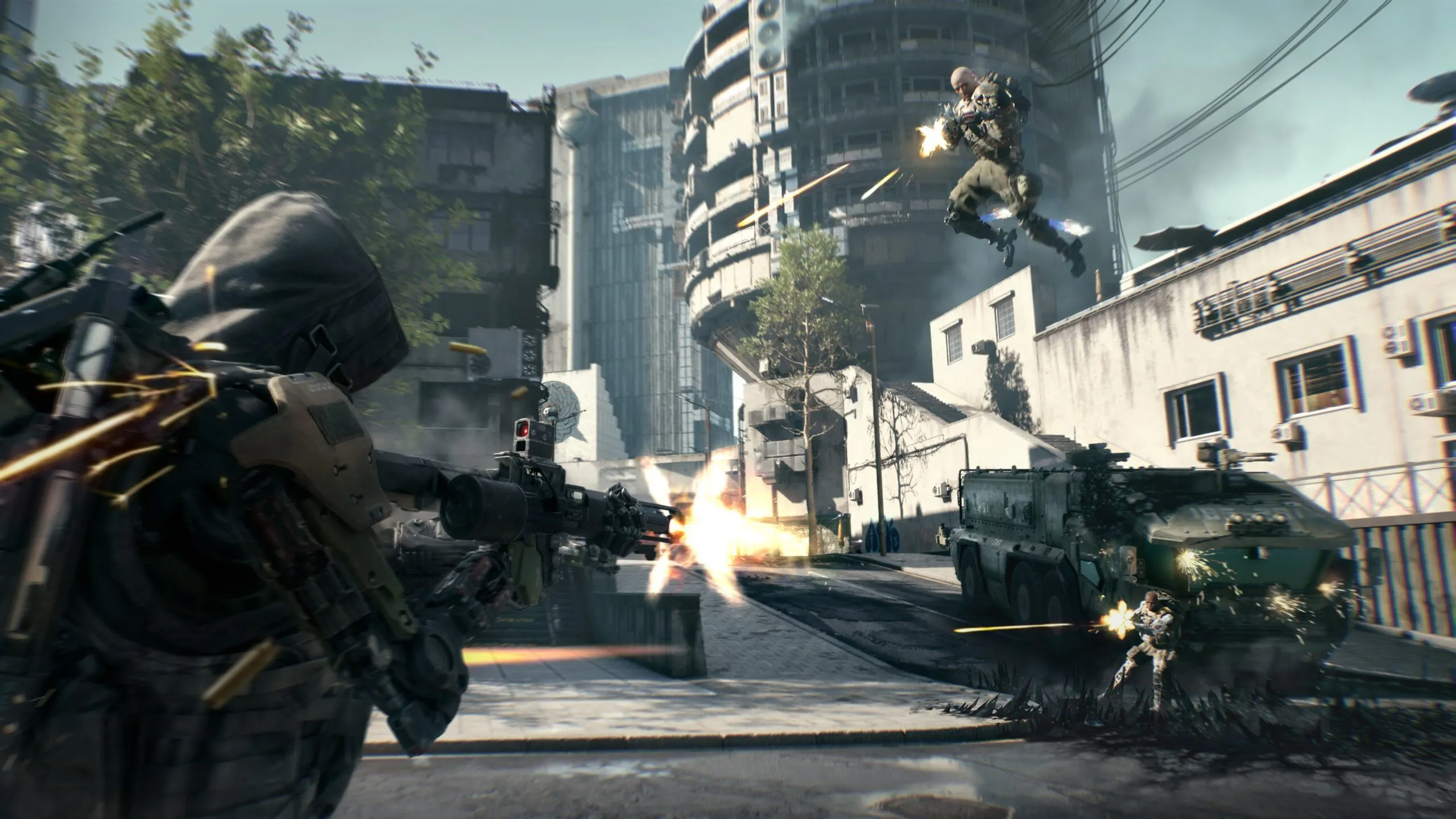How 'Off the Grid' Could Impact the Future of Blockchain Games

Screenshot from Off the Grid. Image: Gunzilla Games
Avalanche-based battle royale shooter Off the Grid has experienced mainstream success that we haven’t seen from crypto games before. The third-person shooter quickly became the top free-to-play title on the Epic Games Store last month, as the early access rollout attracted a crowd of traditional gamers—some of whom may be more open to Web3 than before.
But what made the big launch a crypto gaming success, and how could Off the Grid’s unique approach impact how future blockchain games attempt to reach players?
Most industry experts that Decrypt spoke with put Off the Grid's success down to the “game-first” approach that a section of crypto builders have been hailing for some time. That's when a title focuses on providing quality gameplay above all, rather than leading with crypto and NFT elements and expecting those features—and the associated financialization—to draw players in.
“It validates our ‘game-first’ approach,” Hans Andersson, CBO and co-founder of Moonray Studios, the creators of Ethereum combat arena game Moonray, told Decrypt. “To achieve broad adoption, you need to focus on the gamer and what brings value to them. The gaming experience must be in the center.”
Off the Grid’s gameplay was the primary focus during its early access launch, with tons of clips going viral on social media showcasing the battle royale game’s unique mechanics compared to genre heavyweights like Fortnite, Apex Legends, and Call of Duty: Warzone.
In fact, it took some time for players to even realize that it was a Web3 game at all. While some gamers were offended by the idea of crypto being used in a video game, others—including former professional Counter-Strike player Michael “Shroud” Grzesiek—said that they were coming around to the idea of an NFT item marketplace.
“We appreciate that they’ve been able to show you can deliver a strong game and rise above the noise,” Robert Bowling, studio head of Midnight Society, the creator of extraction shooter Deadrop, told Decrypt. “We love seeing them successfully attract the top players and champion a game-first mentality.”
While that approach might appear obvious, it arrived in contrast to what crypto gaming has historically been known for. Film producer Marco Weber, who is a co-founder of sci-fi IP Space Nation—which includes an Ethereum game—recently told Decrypt that when he first entered the crypto gaming industry, he was alarmed at how much “crap” there was out there.
For example, Pixelmon raised $70 million in 2022 by selling NFTs, promising to deliver a Pokémon-style game that could improve upon the classic Nintendo formula with the benefits of blockchain.
But when the NFT artwork was revealed soon after to widespread backlash, the game’s founder admitted that it was all a “horrible mistake,” and it became a punchline for the industry. After that miserable start, Pixelmon was acquired by another firm and completely reworked—with fresh artwork—to put a fresh foot forward and overcome the initial embarrassment.
Part of the crypto gaming mentality up until this point has been to “build in the open,” allowing for a game’s community to provide insight and help shape the game that is being built.
While that matches the crypto industry’s decentralized ethos, it’s an imperfect fit for game development. This has, in part, been to blame for some of the bad attention the industry has attracted, as games raise millions of dollars just to launch an incomplete product—or never launch at all.
“Thousands of Web3 games have been announced, and few teams are really able to deliver,” said Nicolas Pouard, Vice President of Ubisoft’s Strategic Innovation Lab and Head of Blockchain Initiative. Ubisoft, the firm behind Assassin’s Creed and other major game brands, is the biggest publisher playing in the crypto space.
Granted, incomplete and buggy game launches aren’t exclusive to the crypto world. Cyberpunk 2077 is a prime example of a huge, “AAA” game that launched in a terrible state, attracting awful reviews and even being pulled from some marketplaces. It took years of additional development for developer CD Projekt Red to live up to the game’s promised vision.




